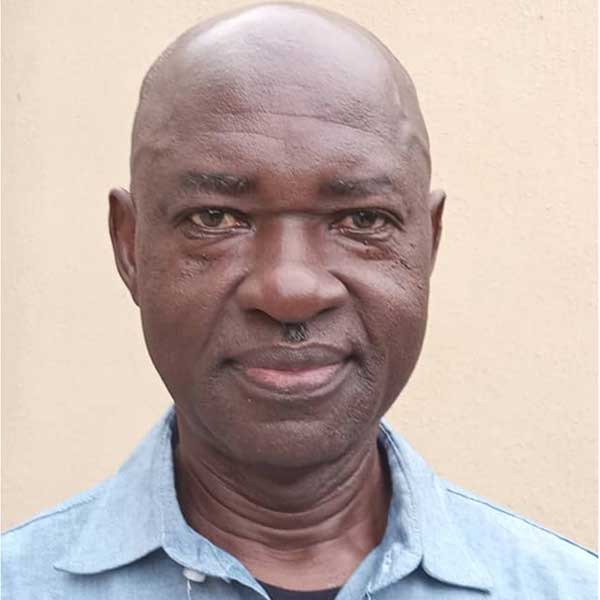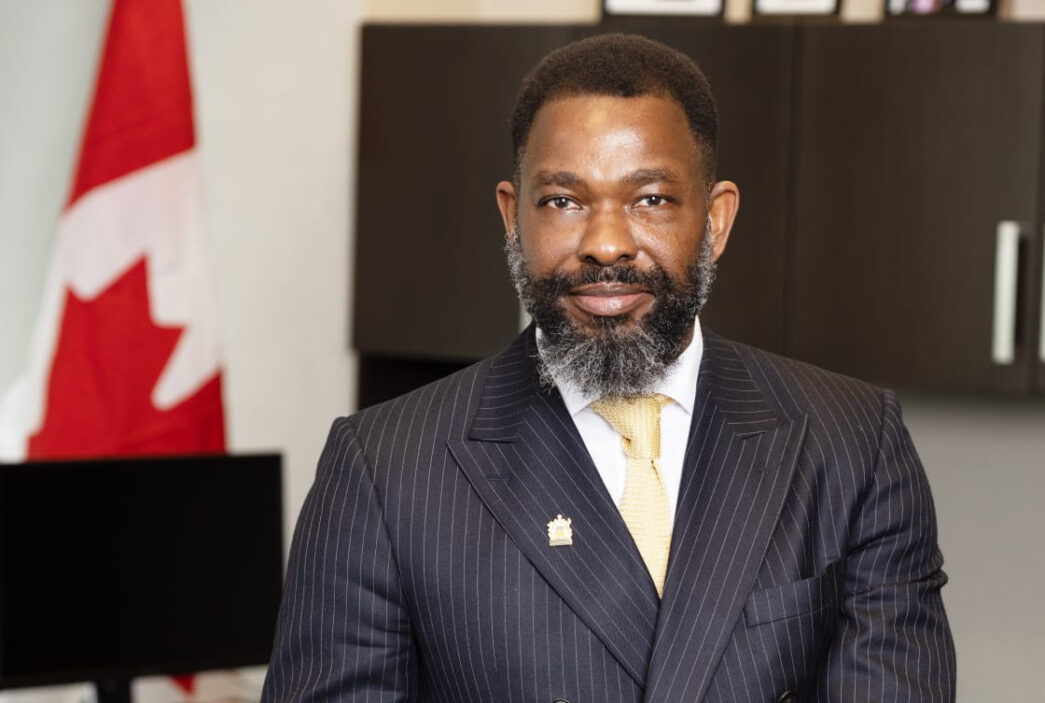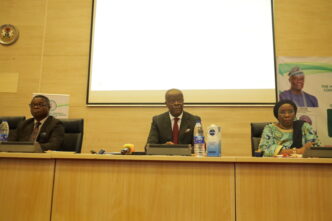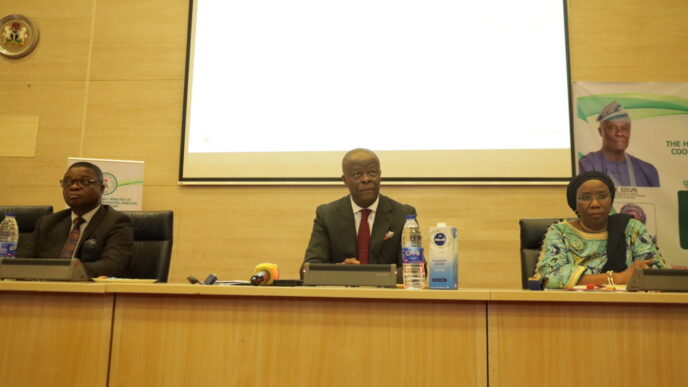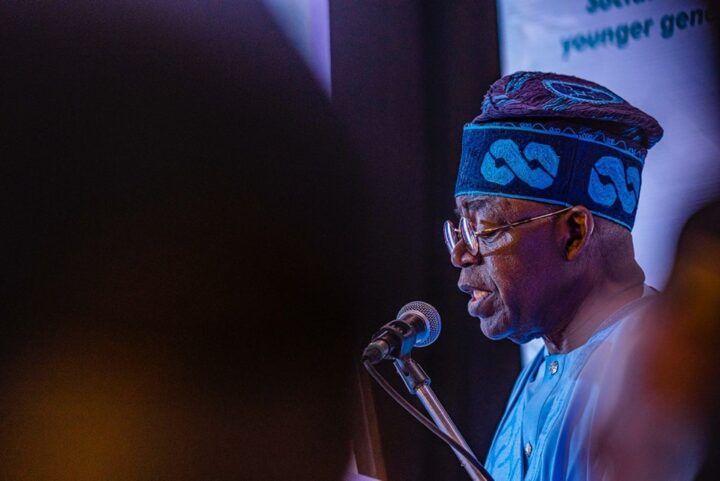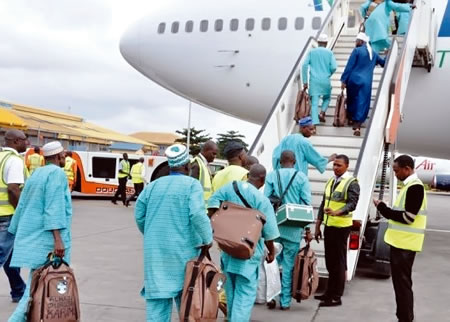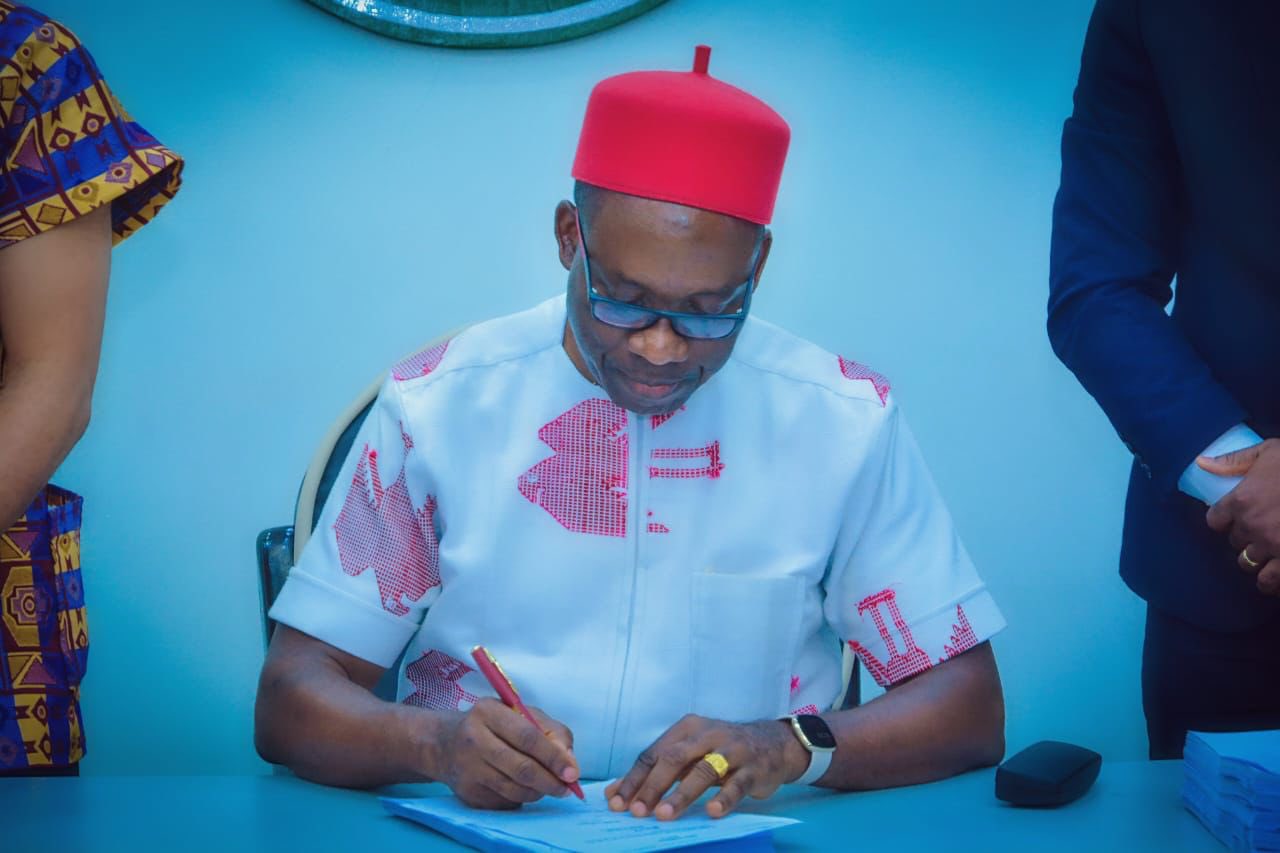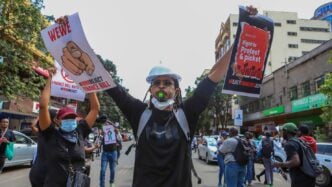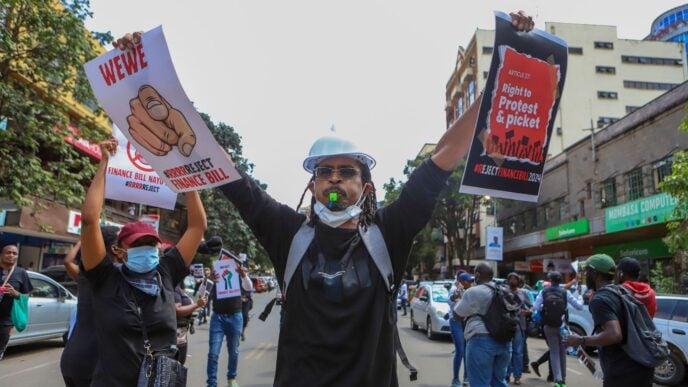The first Nigerian-Canadian in the entire Canada to head any national or provincial ministry. And the first black Albertan to do so. The federal government of Canada and provinces like British Columbia, Ontario and Quebec have all had black deputy ministers, only that they weren’t of Nigerian descent. Professor Akolisa Ufodike, Alberta’s Deputy Minister of Immigration and Multiculturalism, possesses a warm personality and an exceptional profile. Trade was initially among his portfolios when he was appointed in 2022. Yes, even within the growing tribe of Nigerians who excel in distinctive ways abroad, he truly stands out. Any chance to know a thing or two about him first-hand would certainly be worth it.
A breakfast meeting in Abuja last week provided just that. How has he fared in his present responsibility? “It’s been rewarding. Before this job, I was in the academia which is another form of public service, developing future minds. It’s fulfilling moving from carrying out research about public policy to actually implementing it, working on things that impact the lives of ordinary people. I feel privileged to be of service.”
His meteoric rise surely goes beyond privilege. At 51, he has plenty of energy and achievements packed into his eventful life. What’s the driving force? “It’s just a realisation that we have finite time on this planet. As human beings, we’re all time and space travellers. We spend the early part of our lives being trained. If you’re lucky you graduate in your early or mid-twenties. And then the clock starts ticking. You may retire at 65. It means you have 40 years of active service. We sell time for the income we earn. It might sound like a dark perspective but it’s the realisation that there’s a limited amount of time at one’s disposal. That motivates me and I consider myself a work in progress. I believe I can do more, play my own part in the lives of others. That keeps me going.”
He is indeed a true Nigerian, born in Maiduguri to parents from Anambra State (Colonel Leonard and Ebele Ufodike), and now lives in Canada. Unlike some Nigerian citizens outside, however, he appears to be proud of his origin. “You must be talking about the Nigerians out there who are disenchanted with the fortunes of the country. Societies evolve when people are able to share their views freely. Sometimes they’re critical; it’s not malfeasance. Young people feel frustrated and seek greener pastures overseas. These are our assets but they can easily become liabilities.
Advertisement
“For those in the diaspora, it’s the same way they can express their frustrations if their host governments do not meet their expectations. Many of the negative comments you read or hear do not necessarily mean they hate Nigeria. Most of those people would want their country to do better because it can do better. I don’t think that the vexations come from resentment but hope, maybe expressed differently.”
Many Nigerians are dying to migrate to Canada. They include those who don’t even have the requirements. Not even stories of the nasty experiences of some who have crossed over there have been able to discourage this craze. “It’s very important that they find out what skills are in demand and in what sectors. Sometimes there’s asymmetry between what’s available in Canada or elsewhere in comparison to Nigeria. Here, not many parents would want to send their children to school to study carpentry or welding, for instance, but over there, these professions are in high demand; electricians, plumbers, people in the construction industry generally. Retraining might be necessary. If you’re young and haven’t been trained yet, you should consider the professions with openings in your target destinations. Other skills like healthcare, IT and AI are also in high demand in North America.”
A Bachelor’s degree in Physics from the Nigeria Defence Academy Kaduna, an MBA from Cornell and a PhD from Haskayne Business School University of Calgary. Not to mention his fellowship of institutes of chartered accountants in Canada, US and UK, in addition to being a Certified Fraud Examiner and Certified Director of Institute of Corporate Directors (ICD.D). Ufodike’s former memberships of the Provincial Audit Committee for Alberta and Senate of the University of Calgary have further cemented his foothold in Canada’s public space. He must be a genius. “It turned out that I got into the university when I was 13. I didn’t say that to mean that I am a genius. It means I’ve had a lot of time.”
Advertisement
“When you obtain your first degree before you’re 18, it means you have time to change professions and you’re still 27, 28. Academia is my fourth or fifth profession. I didn’t take my full appointment in academia until 2013, as an administrative staff. My faculty position (at York University) came in 2017. Having spent five, six years, this current opportunity came to enable me to serve in a different capacity.”
Starting life very early indicates he had strong pillars and dedicated foundations. “My mom was a teacher. My dad was in the education corps of the army. We imbibed the value of education quite early. I enjoyed reading. One of my aunts had a beautiful library in the 1970s. I would go to her house and disappear into the place. My dad got his Master’s from University of Lagos in 1985. The day he graduated, he told me, “I’ve got a Master’s; you’ll have to obtain a PhD.” It was some sort of subliminal conditioning. When I wanted to go for my PhD, some people wondered why that was important since I was already a CFO/COO (in one of Canada’s largest internet services providers). I then realised that I had been conditioned to earn a doctorate degree.”
A Nigerian shining brightly outside the land of his forefathers, a country grappling with some of its worst challenges in decades at the moment. Something compelling must have brought him on a visit. “Nigeria is a top source country for immigrants to Canada, for international students also. Canada has a great talent attraction. We want to attract persons with the right profile to our province. We’re creating awareness surrounding what skills are in high demand. We also want to ensure the sustainability of the thriving relations between Canada, especially our own province, and Nigeria.”
“Last year, we declared October Nigeria Heritage month, the first in Canada to do so. Other provinces are beginning to do same. It shows the recognition of the contributions of Nigerians to the Albertan economy. As long as people are law-abiding and have talent and drive, the external factors are there to help them succeed. Nobody would be opposed to you being a Nigerian and Canadian at the same time. You can enjoy the best of both worlds simultaneously.”
Advertisement
Multiculturalism in Canada is, no doubt, of huge interest to various individuals and groups across the globe. “It truly celebrates our mosaic. In some other parts of the world, immigrants have to lose their identities to blend into homogeneous societies. But in Canada, people are allowed to maintain their identities. Whenever there are festivities, you would see a mixture of activities representing different parts of the world. A parade for cowboys can feature ‘atilogu’, ‘eyo’ and others. It’s an infusion of cultures. In a mosaic, you can have many colours and still achieve harmony. That’s essentially the Canadian approach to multiculturalism and it works well.”
In approximately three decades, this six-footer has had a professional life that spanned banking, education, telecoms, utilities, consumer packaged commodities, oil and gas. Now in the arena of governance, how much taller can he become?
Dr Ekpe is a member of THISDAY editorial board.
Advertisement
Views expressed by contributors are strictly personal and not of TheCable.
